74 - Plugged In
Thursday, September 26, 2013
She always waved and greeted me if I’d parked up there, opposite her house. Always dressed in black, usually sitting on a high-backed chair just inside her door, staring out for long hours, seemingly hoping that someone would stop for a chat. Shyness that I might not understand her properly made me reticent.
Then one day I caught up with her, making her way slowly down the hill, her arm supported by the community nurse who was encouraging her to walk just a little further than she wanted. She took the opportunity to stop the painful exercise, and chat to me instead. “Come in for a coffee soon” she said. “Yes yes, of course, thank you” I replied, unsure if her offer and my reply were serious.
A week later and she waved again from her door - “When are you coming for coffee?”, her voice not strong. That twist of guilt - it gets you in the stomach. Yes why not? - it seemed she could do with the company. A few days later I knocked on her door.
This was months ago, back in the cold of January, and we buried our knees below the heavy tablecloth covering the brasero, the little heater under the table. A fascinating history emerged, of over 40 years work in the Ayuntamiento, through so many changes, and pride in her son who works there now. She told me of some triumphs and some tragedies. An interesting lady, a companionable afternoon.
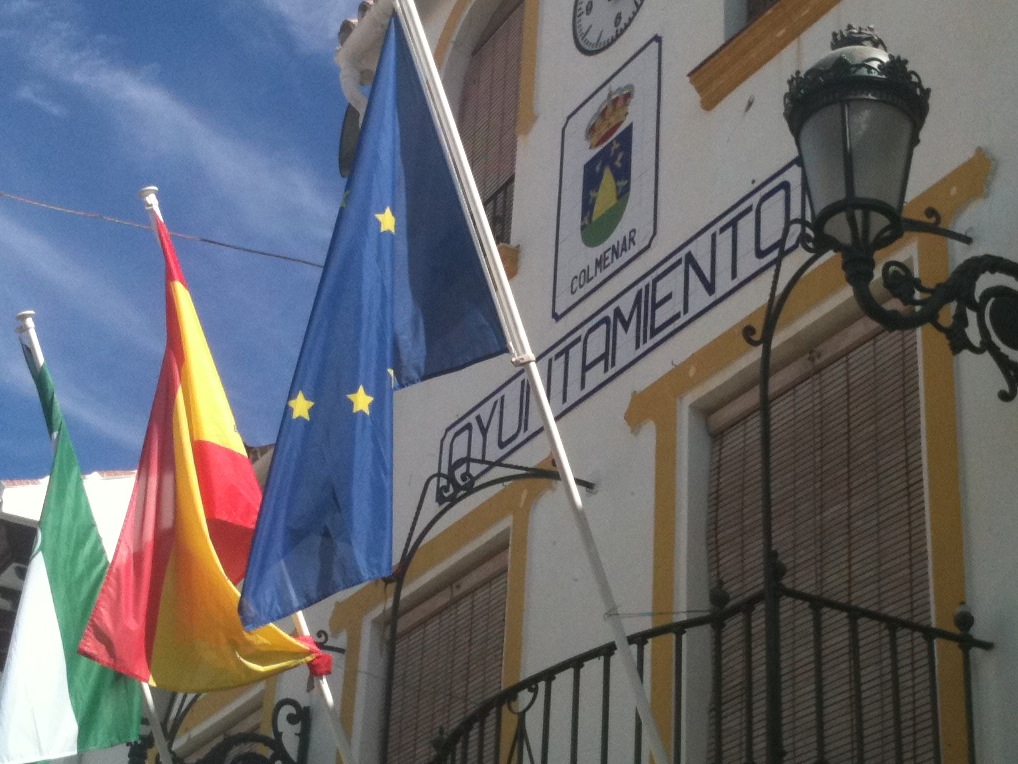 I didn’t really know the Ayuntamiento people then. I’d had some dealings with most of them, paying bills, getting forms completed, the usual day-to-day chores. One had been particularly helpful just before Christmas when I needed an up-to-date empadronamiento certificate. Later, just before New Year I’d gone in to thank her but their section was closed for the holidays. A man asked if he could help me – I explained I just wanted to thank a member of staff for working late the day before Christmas Eve to make sure I had the paperwork in time to pick up my new car. He promised he’d pass it on. I didn’t really know the Ayuntamiento people then. I’d had some dealings with most of them, paying bills, getting forms completed, the usual day-to-day chores. One had been particularly helpful just before Christmas when I needed an up-to-date empadronamiento certificate. Later, just before New Year I’d gone in to thank her but their section was closed for the holidays. A man asked if he could help me – I explained I just wanted to thank a member of staff for working late the day before Christmas Eve to make sure I had the paperwork in time to pick up my new car. He promised he’d pass it on.
Incidents, small occurrences in the daily life in the village. Nothing of import. Until one day recently trundling through the paperwork needed for me to become resident in Spain – it struck me that my registration at the ayuntamiento was recorded as number one in my street, whereas my other official documents recorded me as being at number twenty-one. The ayuntamiento had changed the number of my house – almost certainly correctly, but I was left with an anomaly in my paperwork, and my gestor advised that the Policía Nacional would throw back my application to sign on the Registro de Ciudadano de la Unión Europa (the process by which one becomes officially and legally resident in Spain). It was explained to me that I needed a certificate from the ayuntamiento confirming that the house now known as number 1 is the same house that was previously known as number 21. I submitted a request for this certificate.
Two weeks later and I returned to be told that the papers had been mislaid. A week more and on my return there was a great deal of head-shaking. It reminded me of the infamous video of Spanish funcionarios – well worth a watch (it’s a great spoof of those Wild West shoot-outs …. and hang on for the very final image!).
http://www.youtube.com/watch?v=UZ5zJpC8GKo#t=10
After a few more visits it became clear that, for some reason, my need for this certificate was not deemed to be a priority – which to an extent is understandable, yet to me its absence was a major obstacle to my registration as a full resident.
And then things fell into place.
 I sat in the ayuntamiento foyer for ten minutes. The door to the office of the Tesorero opened (for readers outside Spain, think local authority Chief Executive, rather than Treasurer). Paco came out – the man who had been delighted at Christmas when I’d complimented his staff. Paco – who had been pleased that I had visited his mother and had enquired after her well-being. Paco – who turned out to be the Chief Executive of our town hall. He ushered me into his office and clapped me on the back. All would be well. I sat in the ayuntamiento foyer for ten minutes. The door to the office of the Tesorero opened (for readers outside Spain, think local authority Chief Executive, rather than Treasurer). Paco came out – the man who had been delighted at Christmas when I’d complimented his staff. Paco – who had been pleased that I had visited his mother and had enquired after her well-being. Paco – who turned out to be the Chief Executive of our town hall. He ushered me into his office and clapped me on the back. All would be well.
TO BE CONTINUED …..
© Tamara Essex 2013
THIS WEEK’S (LINKED!) LANGUAGE POINT:
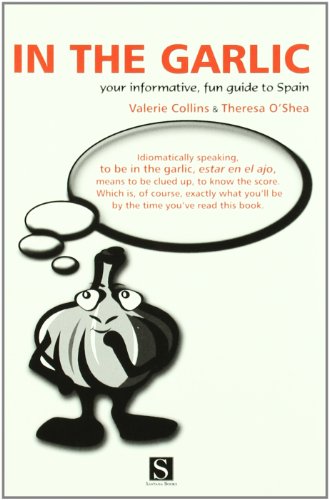 There is a great word in Spanish – enchufe. I first read about it in the wonderful book “In the Garlic” by Theresa O’Shea and Valerie Collins – everybody’s guide to unraveling the complexities of Spain http://inthegarlic.com/in-the-garlic-book/ Look up enchufe in the dictionary and you are told it is a plug of the electric variety. But here’s the excerpt from “In the Garlic” (which in Spanish means “In the Know”) ….: There is a great word in Spanish – enchufe. I first read about it in the wonderful book “In the Garlic” by Theresa O’Shea and Valerie Collins – everybody’s guide to unraveling the complexities of Spain http://inthegarlic.com/in-the-garlic-book/ Look up enchufe in the dictionary and you are told it is a plug of the electric variety. But here’s the excerpt from “In the Garlic” (which in Spanish means “In the Know”) ….:
“Plug, to plug in, and one of the keys to grasping the mechanics of Spanish life. An enchufe is not only a lump of pronged plastic needed to start up your computer /toaster/television, it also comes in the shape of a life-size, strategically situated human being. This flesh-and-blood enchufe may work high up in the place where you have applied for a job. He or she may know a specialist you need to see. Or be on the board of governors of a select school. If your enchufe is high up enough, you may be able to jump the queue where it matters. Grossly unfair, of course, but no-one ever looks a gift plug in the prongs.”
 0
Like
Published at 8:16 PM Comments (0)
0
Like
Published at 8:16 PM Comments (0)
73 - Back to School
Thursday, September 19, 2013
Along with all the local children, it was back to school for a new term for me this week.
 I’ve written before about the language school in Colmenar. Axalingua is run by two brothers, Juan-Mi and Pepe. Juan-Mi teaches me in a weekly one-to-one session (where he struggles to correct the street language I learn in between from friends and neighbours). 65 – Spanish in the Barrio. I’ve written before about the language school in Colmenar. Axalingua is run by two brothers, Juan-Mi and Pepe. Juan-Mi teaches me in a weekly one-to-one session (where he struggles to correct the street language I learn in between from friends and neighbours). 65 – Spanish in the Barrio.
Apparently I’m Level B1. There are tests on the internet which you struggle through until you feel ready to slit your wrists, and the point at which you hurl your laptop across the room reflects the level you are at.
This first one is good, with lots of questions at each level. Unfortunately it doesn’t tell you which one(s) you get wrong, which is frustrating. http://www.spanish-test.net/spanish-test.php
This one is better on two counts – there are just ten questions per level, and it gives you the correct answers to those you get wrong. http://www.cervantes.to/cgi-bin/test-2011.pl
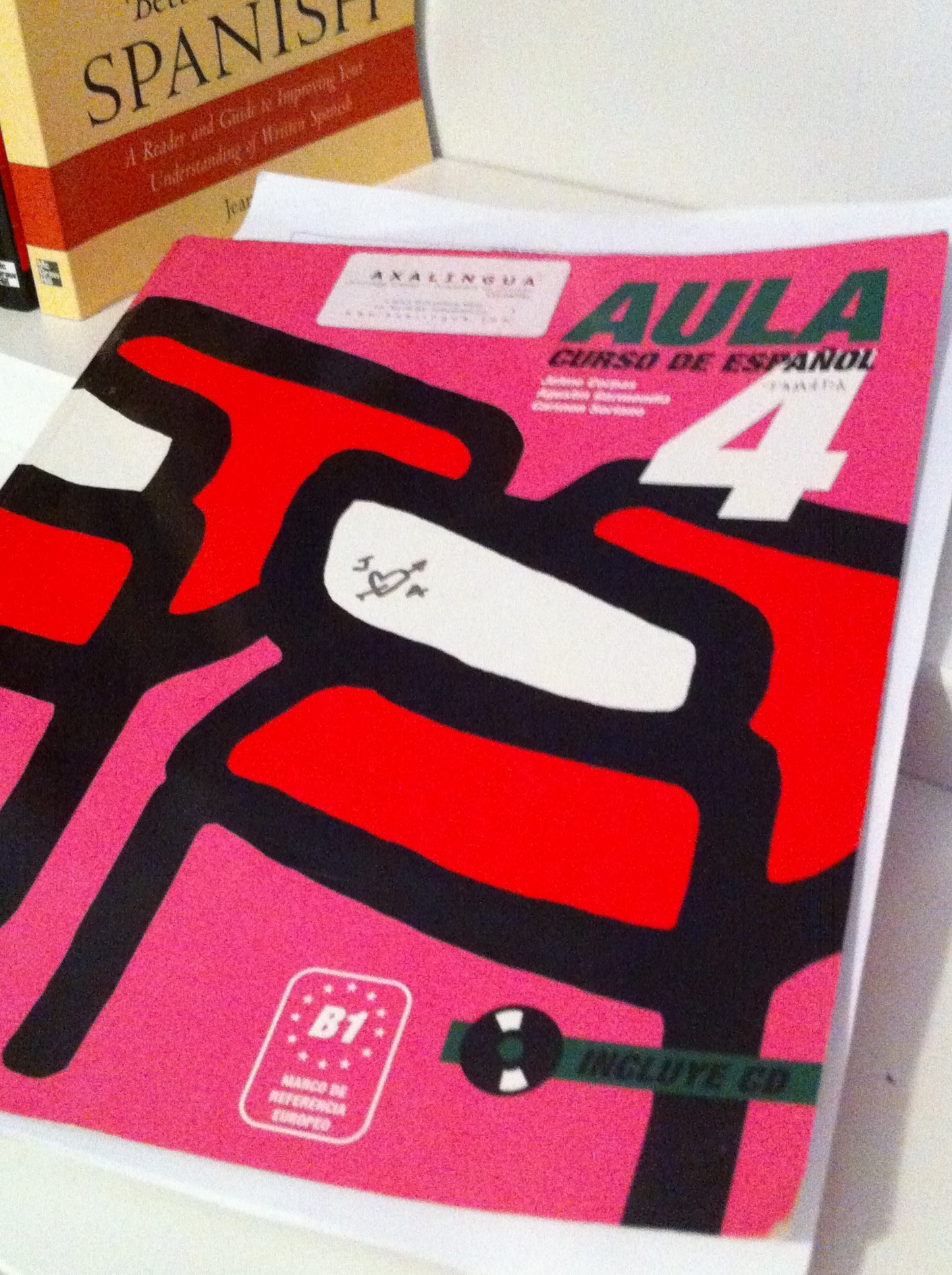 I’m studying B1. As far as I can understand, A1 is for beginners, and I think A2 must go up as far as the equivalent of GCSE, which I took some years ago in Dorset. I seem to be a bit stuck at B1 level – I was considered to be B1 three years ago when I did a week’s intensive course in Madrid. The trouble is that although I’m speaking the language a lot, every day, I am (of course) making many mistakes, and most of the people I am talking to are not correcting me. My only feedback comes from my weekly lesson with Juan-Mi (and we’ve just had a 6-week summer break) and my twice-weekly inter-cambio sessions with Jose. These are much more structured and are the key to improving my correct use of Spanish grammar and vocabulary. 52 – Intercambio and Getting to Grips with Grammar I’m studying B1. As far as I can understand, A1 is for beginners, and I think A2 must go up as far as the equivalent of GCSE, which I took some years ago in Dorset. I seem to be a bit stuck at B1 level – I was considered to be B1 three years ago when I did a week’s intensive course in Madrid. The trouble is that although I’m speaking the language a lot, every day, I am (of course) making many mistakes, and most of the people I am talking to are not correcting me. My only feedback comes from my weekly lesson with Juan-Mi (and we’ve just had a 6-week summer break) and my twice-weekly inter-cambio sessions with Jose. These are much more structured and are the key to improving my correct use of Spanish grammar and vocabulary. 52 – Intercambio and Getting to Grips with Grammar
So I was a little frustrated by the fact that I think I’m improving, and my Spanish friends and neighbours think I’m improving, yet I’m still at B1 which Is where I was three years ago. Harrumph. This week I asked Juan-Mi why I didn’t seem to be improving on paper, and this triggered an interesting debate about learning a language for the sake of communication, and learning a language in order to pass exams. He said I am communicating at a much higher level, but would fail a higher exam because of errors – the kind of thing which nobody would notice in a conversational setting but which would knock me back in an exam.
Back to the classroom then, for me. Because although chatting on the doorsteps is the icing on the cake, the pleasurable objective of the learning process, I know I need the solid foundations which the grammar provides, so that all the tenses are produced at the right time, and all those wretched genders are correct. I remember a line from a training course I used to run, helping charities write more effective fundraising applications to charitable trusts ….. If you put a superfluous apostrophe in, or write “your” when you mean “you’re”, the reader stumbles instead of reading on smoothly, and your message is diminished because they are concentrating on the error and not the message.
And the same goes for a foreign language. I can be understood, but I can see that flash of a stumble in somebody’s face when I make a mistake, and in that moment they have lost concentration on what I am trying to communicate. I want to reduce the errors, to reduce the stumbles. Anyone interested in communication would want the same.
© Tamara Essex 2013
 0
Like
Published at 4:59 PM Comments (5)
0
Like
Published at 4:59 PM Comments (5)
72 - A Day of Little Consequence
Thursday, September 12, 2013
Nothing was planned, really. We’d slept in, and we’d already had two very full days seeing the sights of Málaga and Colmenar. My friend Jane’s last day was just going to spent pootling in the countryside.
The car was parked, as usual, down in the square. It saves meandering through the one-way system up the steep narrow streets and down the other side. The two-minute walk took us about forty minutes though, as neighbours sitting on the step greeted us warmly and sat us down between them for a natter. Another neighbour turned up in his 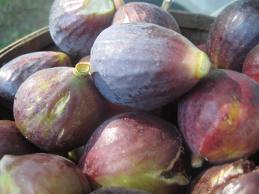 van and began to unload buckets of fruit. Rafaella called him over on a pretext (timing it just right, when he had a bucket of figs in his hand) and poked at the fruit, asking if it was ready or had he picked them too soon. “Try them” he said, and passed us all a plump juicy fig still warm from the sun. We tested them for him. Rafaella wasn’t convinced and took some more, “Just to be sure”. van and began to unload buckets of fruit. Rafaella called him over on a pretext (timing it just right, when he had a bucket of figs in his hand) and poked at the fruit, asking if it was ready or had he picked them too soon. “Try them” he said, and passed us all a plump juicy fig still warm from the sun. We tested them for him. Rafaella wasn’t convinced and took some more, “Just to be sure”.
Five middle-aged women, four of us sitting on the step, Maria-Candelaria perched on her walking frame, fig juice running down our chins. From another house emerged a woman with tissues and we cleaned up. Jane and I were quizzed on our plans. My neighbours were shocked she was leaving the next day. “So soon?” they cried. They assured Jane that I was a good neighbour and friend. Flattering, but mostly embarrassing.
Not in the plan, but then there was no plan. Just a half-formed idea that we’d head for the mountains. That high, winding old road through the Montes de Málaga never fails to impress. This time the eco-museum was open so we 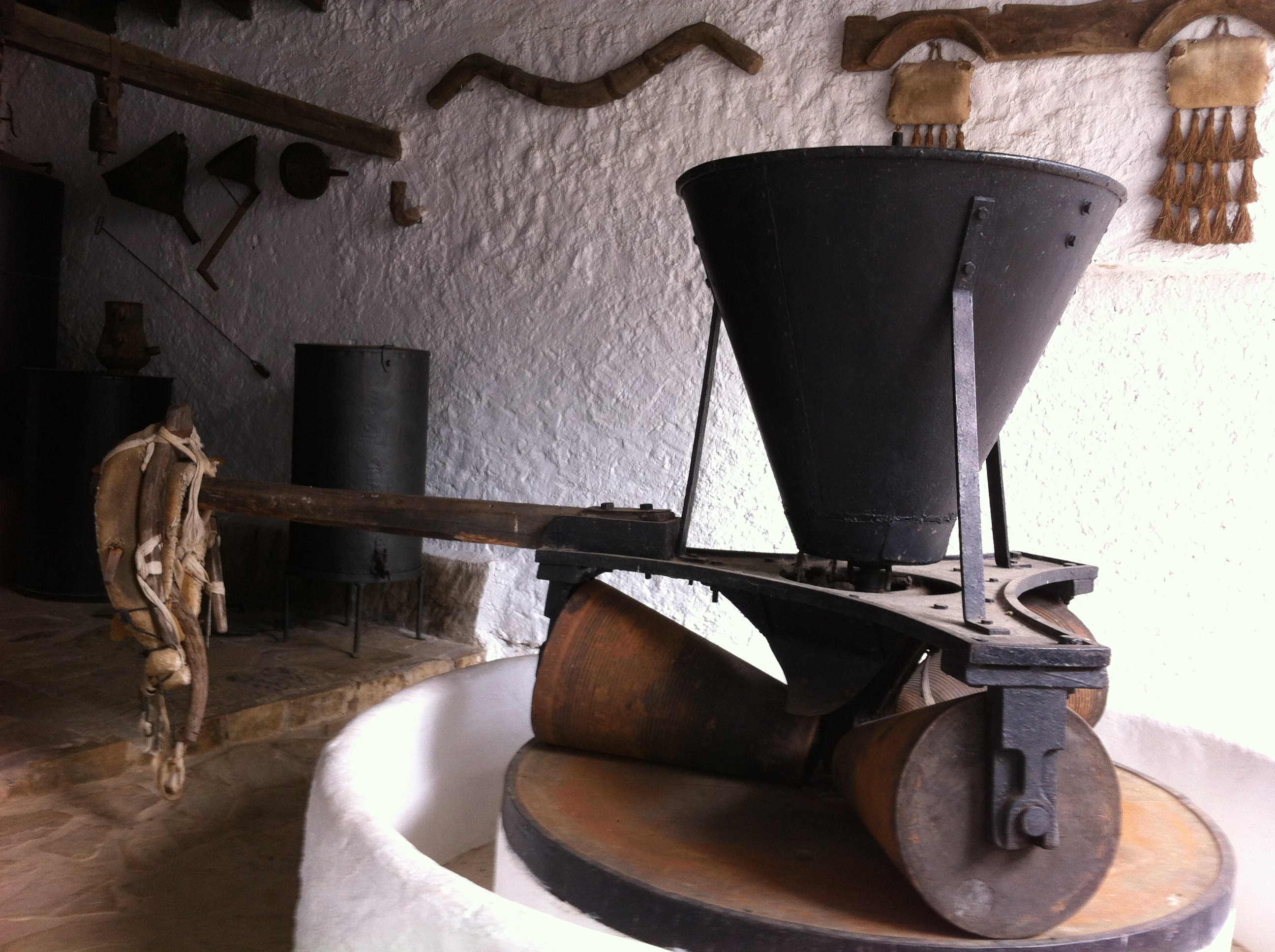 could wander amongst the old farming implements. Down below in the recreation area families were unpacking cold picnics and supplies of meat and sardines. Rows of brick-built barbecues and well-spaced tables nestle in the woodland, and children run safely, a long way from roads. It looked as though extended families had arranged to meet – some of the groups were huge and the mountains of shared food stood in peaks on the tables, echoing the surrounding hills. could wander amongst the old farming implements. Down below in the recreation area families were unpacking cold picnics and supplies of meat and sardines. Rows of brick-built barbecues and well-spaced tables nestle in the woodland, and children run safely, a long way from roads. It looked as though extended families had arranged to meet – some of the groups were huge and the mountains of shared food stood in peaks on the tables, echoing the surrounding hills.
A climb to the mirador, photographs of a gecko, the purchase of a walking map and a recipe book for me, miniature wine bottles and candles for Jane. The smells began to rise from the barbecues below and it was time to seek our own lunch.
I’ve stopped asking for recommendations, or trying somewhere before I take friends – it’ll always be fine, I have yet to have a bad meal inland. A cycling group had taken over the tables at the front of the nearby venta so we went through to the back room, which seemed almost to be overhanging the drop, as the views were incredible. A delicious white bean and chicken soup with crusty bread hit the spot then we continued south on the old mountain road that was the horse-route from Colmenar to Málaga.
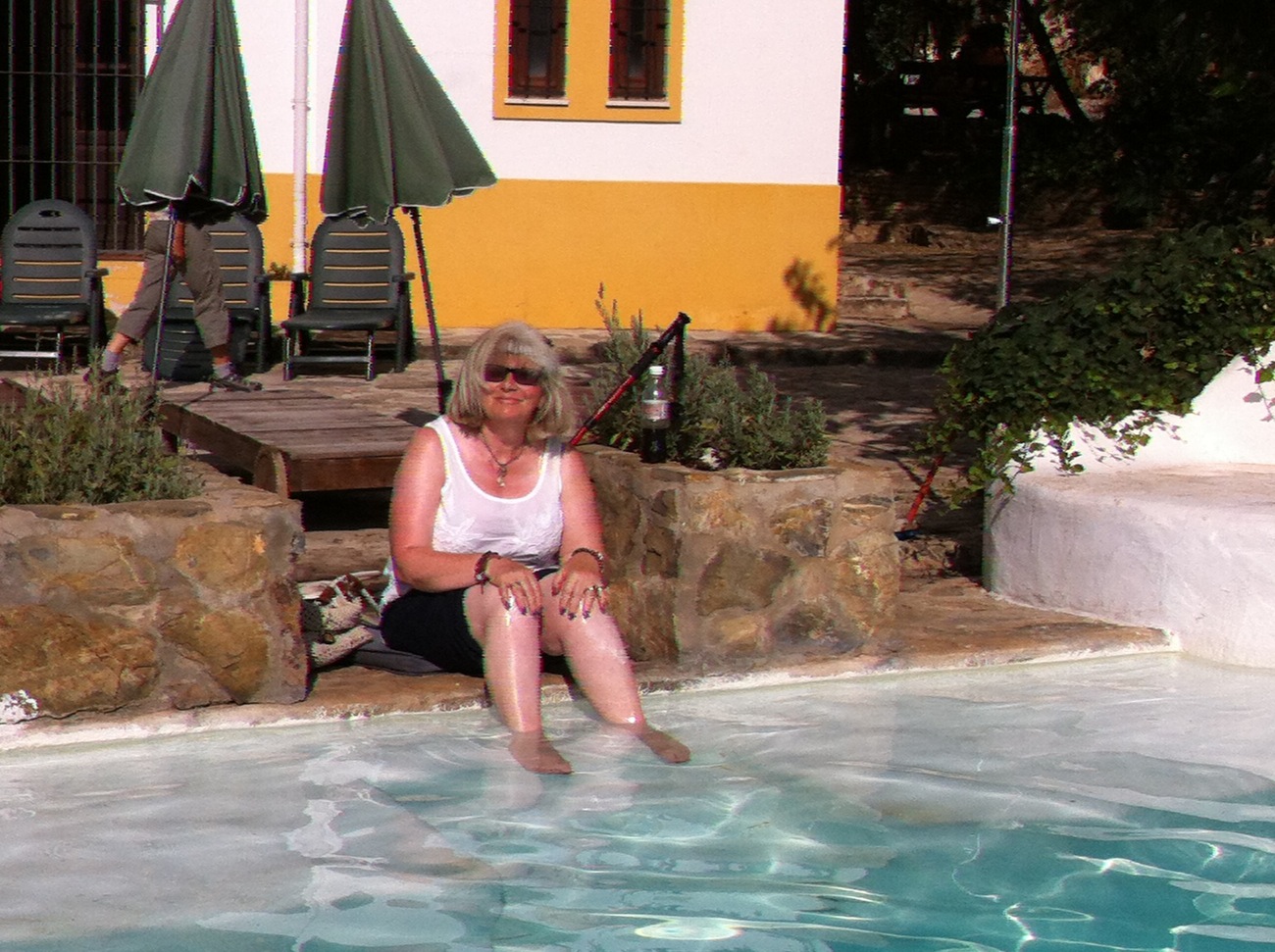 A viewpoint gave us views down to the sea over the city of Málaga. Two bikers on big comfy armchair-style motorbikes parked up and headed off for a walk. It was Sunday and Malagueños were relaxing. Then the track wound downwards to a hidden gem, the Hotel Humaina, miles from anywhere and a haven for an afternoon coffee and a chance to dangle our feet in their pretty circular pool. A viewpoint gave us views down to the sea over the city of Málaga. Two bikers on big comfy armchair-style motorbikes parked up and headed off for a walk. It was Sunday and Malagueños were relaxing. Then the track wound downwards to a hidden gem, the Hotel Humaina, miles from anywhere and a haven for an afternoon coffee and a chance to dangle our feet in their pretty circular pool.
It was the end of a fleeting visit. We’d done beach walks, a chiringuito, an intercambio, el Centro del Arte Contemporaneo, Málaga cathedral and the food market, we’d wasted time in a good many bars and dined at Málaga’s Michelin-starred restaurant. We’d climbed to Colmenar’s summit and admired La Ermita and the cemetery, and naturally shopped for honey at El Museo de Miel. And of course we’d talked, long and late, about large things and small. Two busy days, packed with activity. Then one day sitting on a step eating figs with the neighbours and meandering through the mountains.
“So what did you do on your holiday in Spain?” “Oh, nothing in particular.”
© Tamara Essex 2013
THIS WEEK’S LANGUAGE POINT:
I did my first Spanish lessons at an Adult Education course held in Shaftesbury School. Now I’m pretty sure that things like “this” and “that” would have been learned in Year One. So I guess I must have missed a week somewhere along the line. Because how could it have taken me until now to get “ese”, “eso” and “esa” right?
If you’re anything like me, the “o” masculine ending and the “a” feminine ending are pretty well stuck into the old brain. And yes we know about the exceptions such as “un día”, “el agua” etc. But I was gobsmacked when Jose corrected me in our inter-cambio session when I said “eso libro” – that book. “No” he said, “ese libro – porqué es masculino.” “Si, por supuesto” I replied – “el libro, eso libro”. “No” he insisted, “el libro – ese libro”. “Ese” is the masculine form of “that” – despite all logic! And we only use “eso” when the object is unknown. For example if someone is holding a box, we might ask “¿Que es eso?” because we don’t know if the thing in the box is masculine or feminine.
Pfff. Year One basics. And I didn’t know that. Oh and it goes for “éste”, “ésta” and “ésto” too.
 0
Like
Published at 6:22 PM Comments (2)
0
Like
Published at 6:22 PM Comments (2)
71 - The End of Summer
Thursday, September 5, 2013
The gota fría arrived with a vengeance and washed cars down the main street of Antequera, took the river over its banks in Riogordo, and left my car cleaner than it had been all summer. The sudden storms at the end of the summer, when warm air rising from the sea meets the cooler upper airstreams, are fortunately brief, and we are left with the fresh smell of damp leaves all around.
Now it’s sunshine again, and still warm enough for short sleeves in the streets of Málaga after midnight. But the change is definitely on its way.
Noting the change of seasons in England, a friend asked on Facebook what people had achieved over the summer. Her friends responded with great crops of vegetables, weight loss, good tans, promotions, teaching a spaniel to swim, and learning about balance, failures and successes in life.
I asked my friends about their achievements too. Weight loss was there again, as were good tans! Learning to juggle a family of three … and learning that sometimes good enough is good. Completing a 31st World Naked Bike Ride to protest against oil dependence. Watching a child blossom. Going off round Europe on a motorbike. Small achievements and massive achievements.
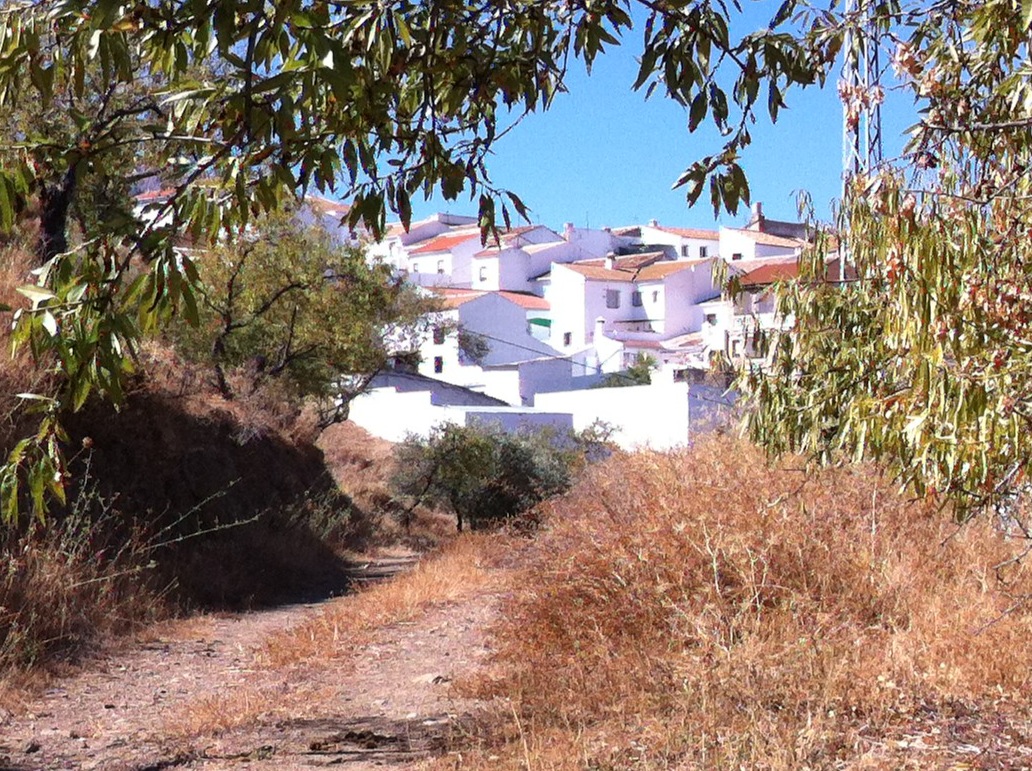 I walked this morning to my usual place, the thinking place, the Enchanted Place. Sunshine warm against my skin, that strong smell of damp earth, and the huge chumbo plants heavy with fruit. The long grass is scorched and brittle, and crunches under my feet. The curved rows in the fields are straight from a Van Gogh painting. The end of summer. I walked this morning to my usual place, the thinking place, the Enchanted Place. Sunshine warm against my skin, that strong smell of damp earth, and the huge chumbo plants heavy with fruit. The long grass is scorched and brittle, and crunches under my feet. The curved rows in the fields are straight from a Van Gogh painting. The end of summer.
Last weekend at our street party I enjoyed eating a freshly-picked fig – my mother’s favourite fruit but I had thought I didn’t like them. Turns out I do. I also ate my first chumbo – those massive spiky fruits, de-thorned and split open with Rafael’s big penknife. My first  attempt drew laughter from the gathered neighbours – I was trying to suck the fruit without eating the pips. They all demonstrated with gusto – two big bites and down the throat, pips and all. My second attempt brought applause and a slap on the back. Poco a poco. attempt drew laughter from the gathered neighbours – I was trying to suck the fruit without eating the pips. They all demonstrated with gusto – two big bites and down the throat, pips and all. My second attempt brought applause and a slap on the back. Poco a poco.
Summer isn’t normally the time to consider achievements. It’s normally the time to look forward and to make plans. But I’m proud of my summer. Apart from eating figs and chumbos, I managed to make a couscous dish that impressed my neighbours at our party; I’ve properly become used to Spanish hours (and have partied till 4am five nights a week, some weeks!); I’ve joined in the comfortable neighbourly doorstep chatter in the cool midnight air; I’ve improved my Spanish no end; and I’ve learned to speak cateto. I’ve got good long-standing friends who provide support when needed, and have made good new friends who sustain my new Spanish life. My blood pressure is back to normal and I’m off all medication. But perhaps my proudest achievement was that two weeks ago I went five full days without speaking a single word of English – just Spanish from morning till …. umm …. well into the madrugada (the small hours!).
I continue to be amazed that the blog is still going, and even more amazed that people are reading it. It is now listed on the Colmenar ayuntamiento website, and it was listed in Saga’s top blogs. The number of readers on the Eye on Spain site astonishes me, and on its home page at Wordpress the number of subscribers continues to rise. I did get a whole lot of new subscribers after the San Juan entry “Pagan Nights” was re-blogged and re-tweeted by a number of major pagan newsletters – however they all UN-subscribed two weeks later when they realised I was not actually a pagan blogger! That little blip aside, I am grateful to all those who follow and comment on this simple web-log of life in my little corner of the Axarquía region of Málaga province.
© Tamara Essex 2013
THIS WEEK’S LANGUAGE POINT:
Some friends were chatting about “frases hechas” (“made phrases”, or what we would call “sayings”) and one Spanish man explained that “un acento cerrado, a cal y canto” which I had written about a few weeks ago in “Can’t Be Translated”, is even more complicated than I’d thought. “Un acento cerrado, a cal y canto” translates as “A closed accent, bolted and barred”, meaning a very thick or strong accent. But in fact “a cal y canto” means something more like “belt and braces”, or doubly-sure. And that makes sense in the “bolted and barred” translation. A younger Spaniard had heard the phrase but didn’t understand it, as the words literally mean “lime and stone”, and when the first man was explaining it was something to do with painting a surface, then finishing it off or smoothing it down, I couldn’t follow the detail. But it certainly seems as though “belt and braces” is a good translation!
 0
Like
Published at 9:58 PM Comments (5)
0
Like
Published at 9:58 PM Comments (5)
Spam post or Abuse? Please let us know
|
|